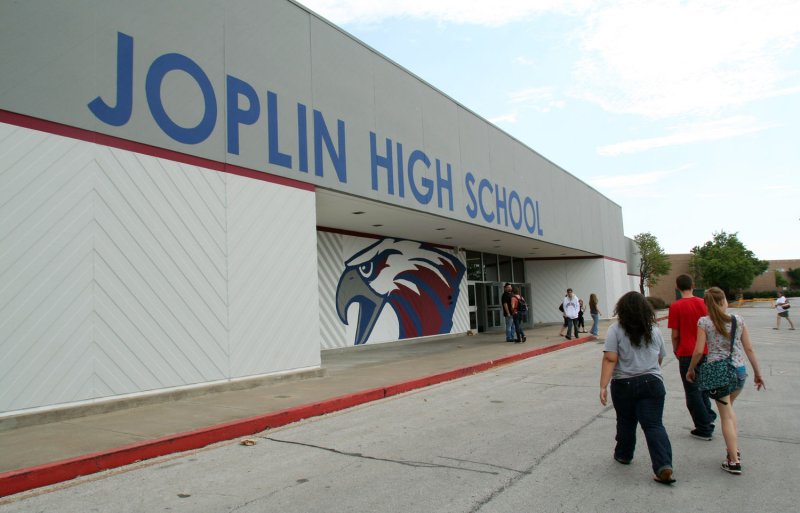Almost half of U.S. public schools failed to achieve year progress goals established by the No Child Left Behind Act, a public school watchdog group said. UPI/Tom Uhlenbrock |
License Photo
WASHINGTON, Dec. 15 (UPI) -- Almost half of U.S. public schools failed to achieve year progress goals established by the No Child Left Behind Act, a public school watchdog group said.
The law requires states to set yearly targets for the percentage of students scoring proficient on state tests and for other performance indicators, with a nationwide goal of 100 percent proficiency by 2014.
States each year determine whether schools have made adequate yearly progress toward these targets based on tests administered during the previous school year. Schools that fail to achieve the targets for two consecutive years or more must undergo a series of mandated interventions intended to improve student achievement.
In 35 states, the percentage of schools not hitting the targets reached a six-year high, the Center on Education Policy said Thursday. In 24 states and the District of Columbia, half or more of the public schools failed to hit the goals -- double the number from last year.
Three-quarters of schools in Florida, Missouri, New Mexico, Massachusetts, South Carolina and the District of Columbia also failed.
"The fact that half of American schools are considered 'failing' under NCLB shows how crudely the law measures the quality of a school," center President and Chief Executive Officer Jack Jennings said.
Jennings said wide variations in state results may be due in large part to differences in states' tests, demographics, proficiency targets and other factors, the report said.
"States with a high percentage of schools failing to make AYP should not automatically be considered to have weak educational systems -- they may have harder tests or higher proficiency targets," research assistant Alexandra Usher said.















